From Reading Room Assistant Becky Ruud
In 2012, the Clark acquired a collection of 548 French plays. These plays were lovingly bound in 42 volumes between 1814-1819. However, the ordering of the volumes seems to have no discernible pattern. The collection includes plays from the 1780s through the early 19th century, although the majority of the plays come from the time of the French Revolution. The collection’s 42 volumes are bound in contemporary calf-backed boards. One volume has a marbled fore-edge where the others are left plain. In addition, each volume includes a handwritten index at the back of the volume, written by the original owner.

The owner’s love of these plays is evident in his arduous corrections to dialogue and even addition to printed title pages. The example below was repeated many times throughout the collection when title pages were missing from the play.
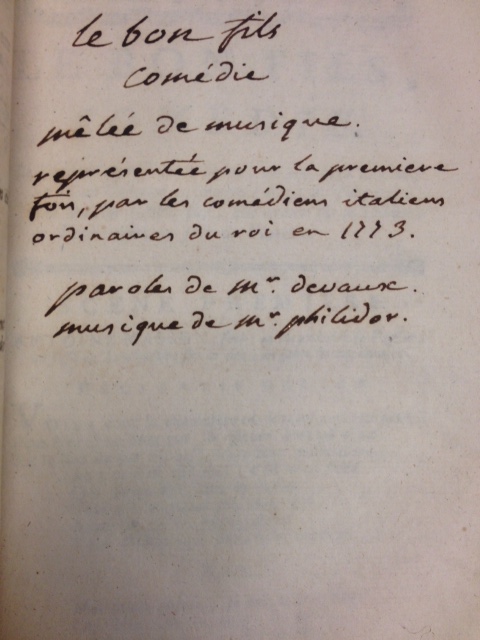
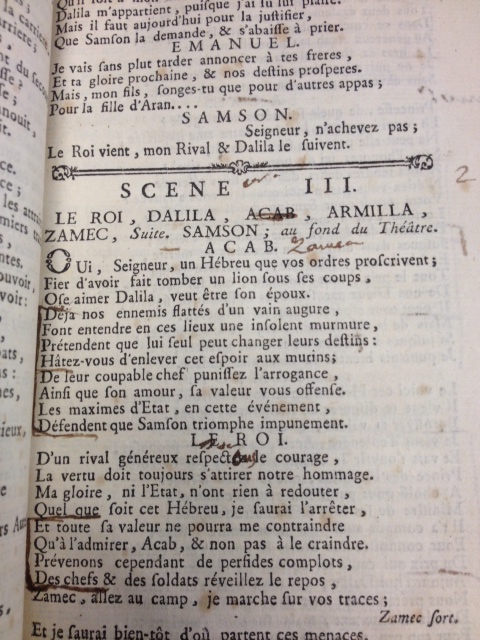
In addition, he added missing information from title pages and wrote out plays in their entirety!
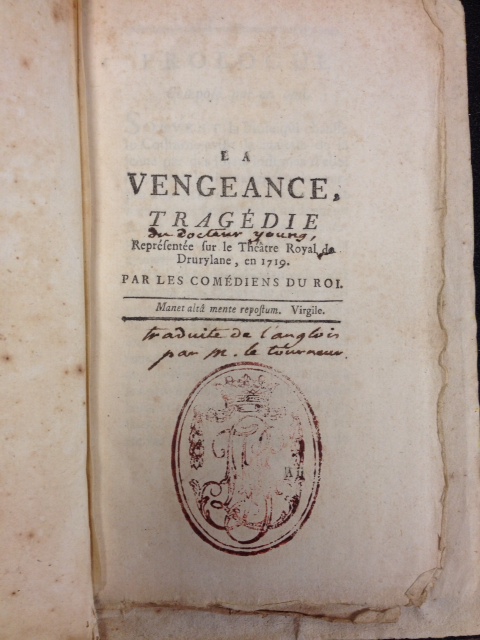
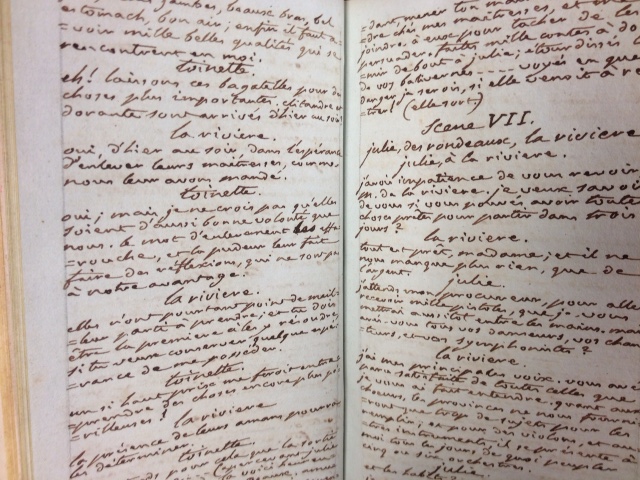
Almost all of the volumes include an unidentified armorial stamp at the front of the volume, seen in the first photo above.
Most of the included plays are comedies, which reflect the popular fashion for comedies in France during this period. Also, presumably to circumvent censorship laws, many of the plays were published in the provinces and internationally, including printing shops in Avignon, Toulouse, Carcassonne, London, Amsterdam, and others. The majority of the plays were written by Favart, Sedaine, Desforges, Le Brun, and Marmontel and were composed by Philidor, Gretry (and daughter), Bruni and Dalayrac. Printers of these plays mostly included Parisian printers Chez Barba, Chez Duchesne, and Jacques Garrigan and Berenguier of Avignon.
Interestingly, the volumes include many retellings of Shakespeare, including a French version of Hamlet where Hamlet and Ophelia survive. The final speech is given by Ophelia wherein she describes how wonderful Hamlet is, clearly not Ophelia’s original feelings in the original play. Although it is not clearly not Shakespeare’s Hamlet; it is noted on the title page to be in the style of the English. Also, for those Anne Rice fans out there, including me, the play Arlequin Sauvage featured in her book The Vampire Lestat is included in this collection! This was written into her story as Lestat’s first acting experience where he portrays the main character of this play.
This collection reflects the owner’s taste for comedies and love of theatre, but it also represents the culture of the French Revolution. The dates printed in the plays change to the Republican calendar and then seem to revert back towards the Gregorian calendar. The owner almost always writes the Gregorian date next to the Republican date at the end of each title page. Another example, many printers over time change their names to include “et fils” or become “mme”, perhaps when the printer dies. Finally, the genre and style of plays seems to change over time. It can be seen that over time the genres slowly include more varied styles of comedies including comedy-proverbe, parodie, opera-comique, divertissment, melodrame, vaudevilles, comedie lyrique, and others.
Perhaps my favorite parts of this collection are the original owner’s annotations. I especially like when he seems to be practicing what was appears to be his name on many title pages, and within the leaves of the plays. As seen below, he seems to be writing the name Delmas David Cadet time and time again. I would be curious to know if that name is familiar to anyone.
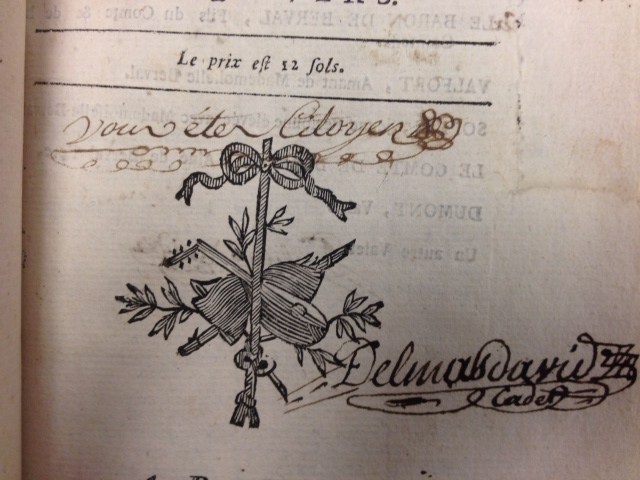
This very real connection to history is what I enjoy most about special collections work. I started to feel as though I knew the owner over the time I spent with the collection. I trusted his annotations (they were correct nearly every time), and as the volumes increased in number so did the amount of inscriptions he did. This unique collection should be revered for the owner’s dedication to the genre and the breadth of plays included in this large collection. The UCLA library, at this time, does not include many examples of the minor forms of comedy included in this collection which makes this collection even more special for the Clark.

